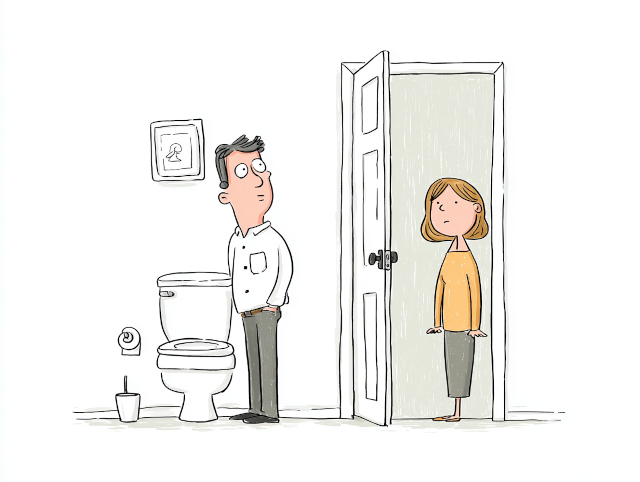A new study led by researchers at Karolinska Institutet has found that people with higher levels of the protein albumin in their urine face an increased risk of developing dementia later in life. The findings, published in the Journal of Internal Medicine, point to a strong link between kidney health and brain function, challenging the long-held notion that dementia arises solely from processes within the brain. Although advancing age remains the most significant risk factor for dementia, scientists are increasingly recognising that conditions affecting other organs—particularly the kidneys—may contribute to the onset and progression of cognitive decline. This research highlights the importance of looking beyond the brain itself to understand and potentially prevent neurodegenerative diseases.
Albumin is a key protein in the blood that helps maintain fluid balance and transport hormones, vitamins, and enzymes throughout the body. Under normal conditions, albumin should not pass through the kidneys into the urine in significant quantities. When it does, the condition is known as albuminuria, an early sign that the kidneys’ filtering units, or glomeruli, are damaged. In this new study, researchers analysed data from 130,000 older adults living in Stockholm, all aged 65 or above and free from dementia when the study began. Over a follow-up period of about four years, seven per cent of participants went on to develop some form of dementia, allowing researchers to examine how urinary albumin levels correlated with cognitive decline.
The results were clear and compelling. Individuals with moderate albumin levels—between 30 and 299 milligrams per gram of creatinine—had a 25 per cent greater risk of developing dementia compared to those with normal levels, defined as less than 30 milligrams per gram. The risk was even higher for those with severe albuminuria, at or above 300 milligrams per gram, who faced a 37 per cent higher likelihood of developing dementia. This pattern held even after adjusting for other variables, including kidney function, blood pressure, and cardiovascular health. Such findings suggest that albuminuria is not merely a by-product of poor health but a potential independent marker of dementia risk, particularly for forms associated with vascular damage.
Indeed, the association was strongest for vascular dementia—the second most common type of dementia after Alzheimer’s disease—as well as for mixed dementia, which combines features of both vascular and Alzheimer’s pathology. Vascular dementia occurs when blood flow to the brain is compromised, typically due to conditions such as hypertension, diabetes, or stroke. The researchers propose that albuminuria may reflect systemic vascular dysfunction affecting both the kidneys and the brain. Because both organs depend on networks of fine blood vessels, damage to these delicate structures in one organ often mirrors similar processes in the other. As the study’s senior author, Assistant Professor Hong Xu of Karolinska Institutet’s Department of Neurobiology, Care Sciences and Society, explained, “The kidneys and the brain may seem like very different organs, but they share an important characteristic: both depend on a delicate network of small blood vessels. When the blood vessels in the kidneys are damaged, the same process often occurs in the brain.”
This interconnection between kidney and brain health extends to the blood–brain barrier, a semipermeable layer that protects neural tissue from harmful substances in the bloodstream. When this barrier is compromised, toxins and inflammatory molecules can penetrate the brain, leading to damage, inflammation, and the build-up of harmful proteins such as amyloid-beta and tau, which are closely linked to dementia. The study draws a parallel between this process and another. What happens in the kidneys: just as a damaged renal filter leaks proteins into the urine, a weakened blood–brain barrier allows unwanted materials into brain tissue. Over time, these cumulative effects can accelerate the deterioration of neural pathways and contribute to cognitive decline.
The implications of these findings are significant, suggesting that a simple urine test could become a valuable tool for assessing dementia risk. Routine screening for albuminuria is already standard practice in patients with diabetes and kidney disease, but this research broadens its potential use to include early dementia risk assessment. “These results underscore the importance of routine screening for albuminuria as part of early dementia risk assessment, especially in patients with high blood pressure, diabetes, cardiovascular disease, or kidney disease. Early detection of albuminuria could potentially delay or prevent the onset of dementia,” said Hong Xu. Such preventive strategies could enable clinicians to identify at-risk individuals long before cognitive symptoms emerge, allowing for early lifestyle or medical interventions.
Moreover, this study reinforces the importance of a holistic approach to dementia prevention. Rather than viewing dementia solely as a neurological disorder, it calls for an integrated model of care that addresses systemic health, particularly cardiovascular and renal function. Managing blood pressure, controlling blood sugar, reducing cholesterol, and maintaining vascular health may protect not only the heart and kidneys but also the brain. Lifestyle factors such as diet, exercise, and stress reduction can further help maintain healthy blood vessels throughout the body. The message is clear: protecting the brain begins with protecting the systems that sustain it.
Ultimately, the Karolinska Institutet study represents a significant step forward in understanding the biological bridges between the kidneys and the brain. By identifying albuminuria as a measurable, early marker of dementia risk, it offers clinicians and researchers a new pathway for early diagnosis and intervention. As the global population ages and dementia cases continue to rise, such discoveries are vital. They remind us that the body operates as an interconnected whole and that diseases once considered localised—such as kidney dysfunction—may, in fact, have far-reaching consequences for cognitive health. In essence, the research shows that what we see in the urine may hold vital clues to what is happening in the brain.
More information: Hong Xu et al, Albuminuria is associated with increased risk of dementia, independent of eGFR: The SCREAM project, Journal of Internal Medicine. DOI: 10.1111/joim.70022
Journal information: Journal of Internal Medicine Provided by Karolinska Institutet








